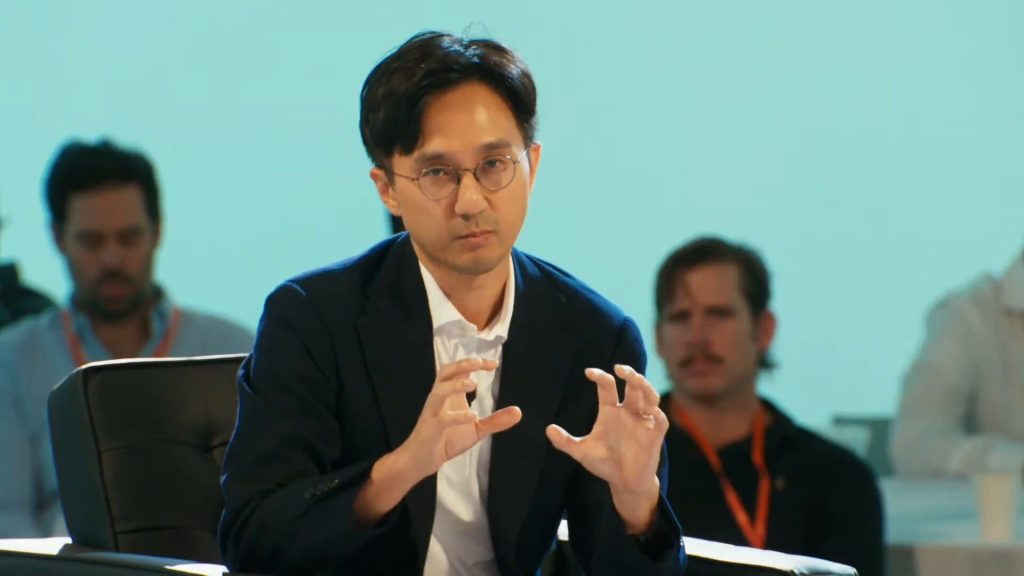South Korea’s Bitplanet Kicks Off 10,000 BTC Treasury With First Purchase
South Korea’s publicly listed Bitplanet has executed its inaugural Bitcoin purchase, acquiring 93 BTC on Sunday as the opening salvo of an ambitious daily accumulation strategy targeting 10,000 BTC.
The Bitcoin treasury company, backed by Metaplanet CEO Simon Gerovich and venture capital firm Sora Ventures, is positioning this program as the first Bitcoin acquisition by a public Korean firm through regulated infrastructure.
According to a Yahoo Finance report, the company revealed during Bitcoin Asia 2025 in late August that it had earmarked $40 million for the treasury initiative, alongside a corporate rebrand away from its former identity as SGA Co., Ltd.
Co-CEO Paul Lee confirmed that Bitplanet had been purchasing Bitcoin daily for roughly two weeks before Sunday’s formal announcement, with all transactions fully disclosed through a compliance monitoring platform operated by Korea’s Financial Services Commission.
 Source: X/@paulslee84
Source: X/@paulslee84
From IT Firm to Crypto Treasury
Bitplanet is reported to have trailing twelve-month revenue of approximately ₩75.5 billion ($55 million) and net income of about ₩4.7 billion ($3.4 million), indicating stable core operations.
The company previously operated as an IT services and systems-integration firm specializing in cybersecurity, network infrastructure, and embedded software for government and enterprise clients, before pivoting to its Bitcoin treasury model with support from new institutional investors.
Lee stated that Bitplanet has “materially improved” its governance structure and implemented enhanced investment and capital management processes over the past month.
The firm operates under what Lee described as a “stricter interpretation of current FSC guidance to ensure a smooth transition,” positioning itself to meet or exceed regulatory requirements under South Korea’s Digital Asset Basic Act, which aims to establish unified standards for token issuance, custody, and corporate crypto holdings.
Aside from Gerovich, Bitplanet’s leading investor includes Sora Ventures, which has spearheaded efforts to build a consortium of public companies across Asia aligned in building digital asset treasuries, even as major regional stock exchanges have pushed back against the concept.
Sora Ventures launched its dedicated Bitcoin treasury fund in September at Taipei Blockchain Week, backed by an initial $200 million commitment with a target of acquiring $1 billion worth of Bitcoin within six months, supporting pioneers like Japan’s Metaplanet, Hong Kong’s Moon Inc., Thailand’s DV8, and South Korea’s Bitplanet.
Asia Emerges as Corporate Bitcoin Adoption Hotspot
A recent report from Cryptonews shows that wealthy Asian families and their investment vehicles are stepping up crypto allocations, with both private funds and public companies deepening exposure despite recent market volatility.
Singapore’s NextGen Digital Venture recently raised over $100 million for its Next Generation Fund II.
At the same time, UBS reported that some Chinese family offices intend to allocate up to 5% of their holdings to crypto, with younger generations increasingly driving adoption.
Japan has emerged as a corporate hotspot, with Tokyo-listed Lib Work unveiling a $3.3 million Bitcoin treasury strategy in August, citing inflation hedging and overseas growth plans.
Metaplanet Inc. leads Japan’s corporate push, recently purchasing 5,268 BTC, lifting its total holdings to over 30,000 BTC worth over $3.5 billion, while shareholders approved an overseas share sale of up to $884 million, with most proceeds earmarked for further Bitcoin acquisitions.
Bitcoin Recovery and Institutional Momentum
Bitplanet’s announcement comes as Bitcoin regains momentum in October, climbing roughly 3.7% over the past week to $115,200 after recovering from last week’s lows near $107,000 following a $19 billion wipeout of leveraged positions earlier this month.
The asset added nearly 6% in the past month alone, extending gains after softer-than-expected U.S. inflation data reinforced expectations that the Federal Reserve may cut rates in December.
Bitcoin climbed 3.6% on Monday to cross $115,000 as equities rallied and risk appetite improved on signs that trade tensions between the US and China may be easing, with total crypto market value rising 3.7% to $3.9 trillion.
Institutional interest in treasury positioning remains elevated, with concerns about MicroStrategy’s growth outlook offset by renewed interest in names such as Metaplanet, BitMine, and Galaxy Digital.
Senior US and Chinese economic officials outlined a framework over the weekend that Presidents Donald Trump and Xi Jinping are expected to review this week in South Korea, potentially pausing steeper tariffs and rare earth export controls.
You May Also Like

SEC approves new exchange listing standards fast-tracking crypto ETF listings

The “100% Win Rate Whale” has completely closed its BTC long position, making a profit of $1.4 million
